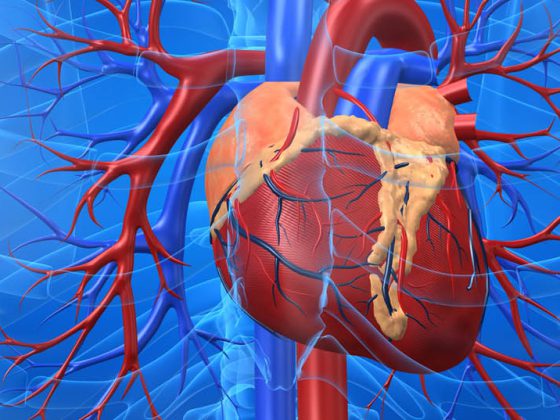The 13th Union Meeting of the Swiss Vascular Societies in Bern was held under the motto “Facts and Myths in Vascular Medicine”. Experts gave insights into their work, and in workshops the participants were able to lend a hand themselves.
Prof. Peter Mortimer from St. George’s Hospital in London discussed a topic that unfortunately has still not found its due place in the everyday life of physicians. “Lymphology is in the process of catapulting itself out of a 350-year neglect and back into clinical research,” the dermatologist pointed out. Until now, the examination techniques and therefore the knowledge were lacking.
Prof. Mortimer’s research group has succeeded in finding the genes for five different forms of non-hereditary lymphedema; a total of eight forms are known. Through studies of familial lymphedema and the genetic alterations found there, it is hoped to discover even more causes of dysfunction, as well as other functions of the lymphatic vascular system. Thus, the previously assumed rate of tissue fluid removal (10% via the lymph, 90% via the veins) is certainly incorrect, as direct measurements show [1], Prof. Mortimer emphasized. “Every venous edema is actually a lymphatic one,” he held in Bern. Chronic peripheral edema, he said, is due to either lymphatic failure or excessive capillary filtration that exceeds lymphatic drainage. Lymphatic vessel function in morbid obesity also appears to be much more important than previously thought. Fat absorption and transport via the lymph may play a role in its development. Liposuction as a therapy for lymphedema makes mechanical sense. However, it is important to ensure sufficient permanent compression. It would also be very important to have a predictor of postoperative lymphedema in tumor surgery, and this is also being looked for [2].
Basic lymphology research from Lausanne and Zurich was also well represented at the congress. In inflammation and in immune regulation, lymphatic vessels and lymph nodes play a much more active role than previously thought. In animal models, it has been shown that shear forces have a role in immune function and that lymphatic vessels become abruptly hyperpermeable under passive pressure. Currently, intensive research is also being conducted on the common features of vasculo- and lymphangiogenesis. The VEGF family is the focus here. In Milroy disease, patients have lymphatic vessels, but they are inactive. The lymphatic capillaries are capable of fluid, protein, and cellular uptake, and the collecting vessels are capable of lymphatic transport. Both are needed for efficient lymphatic transport and immune response. Fluorescence micro-lymphangiography can now be used to determine how the lymph flows and whether retrograde reflux is present.
Paradigm shift in angiology?
The current status of the new oral anticoagulants NOACs was discussed by a coagulation specialist, angiologist, and anesthesiologist in a lunchtime symposium. Not only are these three disciplines challenged daily to make decisions that will come with the wider use of rivaroxaban (Xarelto®), dabigatran (Pradaxa®), and likely soon apixaban (Eliquis®), but virtually every physician who sees patients with coagulation disorders. In any case, the interest in the explanations was great. The biggest plus so far has been that in atrial fibrillation, all three new compounds from two classes have achieved consistent results, proving that the principle of selective blockade itself works, said Jan Steffel, MD, PhD, of USZ Zurich. Rivaroxaban (Xarelto®) was shown to be a better alternative in the treatment of deep vein thrombosis DVT and pulmonary embolism LE (with significantly less bleeding in LE therapy). The handling represents a simplification, since an oral initial therapy is possible. Secondary prevention showed significant prevention of recurrent events. It is also clear, Dr. Steffel explained, that these many advantages are also countered by ambiguities, which are, however, being worked on. It is not yet clear how the anticoagulant effect can be quantified and how this measurement can be validated. In contrast to the vitamin K antagonists, a fast-acting antidote was lacking. However, the half-life of the substances is a useful regulator, he said. Data are still lacking in certain patient groups, for example after acute coronary syndrome or in combination with dual antiplatelet therapy. Special care should also be taken in patients with renal insufficiency. A question mark that will always remain, moreover, is patient compliance.
Patient characteristics and -desire
Prof. Jürgen Beer from Baden pointed out similarities and differences between the two anticoagulants, which are already approved in Switzerland. For him, the most important selection criteria for whether to continue prescribing VKA or a NOAC are individual patient characteristics and patient preference. In patients who are well adjusted with a VKA, he rarely sees a reason to switch. He also said that when patients show or are concerned about poor compliance, the quick value determinations are a tool to keep the patient on therapy. If problems develop despite good compliance with therapy, a NOAC should be discussed. In addition, an important reason for switching to rivaroxaban or lower-dose dabigatran is renal insufficiency.
Prof. Beer also sees the lack of an antidote for severe bleeding as a shortcoming. That’s why he weighs gastrointestinal bleeding in the history very carefully and consults a gastroenterologist. The topic of “cost efficiency” must always be seen from the point of view of the observer – for example, the patient, the physician, the health insurance company, the pharmaceutical industry, and society each have different concerns. Overall, there are sufficient arguments for therapeutic progress but also in the area of costs.
Prof. Donat Spahn, Director of the Institute of Anesthesiology at the USZ, pointed out the recommendations of the expert group “Rivaroxaban and Anesthesiology” [3]. Interested parties can find detailed information on the topic on the SGAR website. So far, he summarized, there have been no unresolvable problems with rivaroxaban in the perioperative setting in his setting. In cases of acute bleeding or suspicious intoxication, measurement of plasma concentration could provide important information, he said. Progressive administration of factor concentrates can treat coagulopathy well (but be careful if there is an underlying thrombotic disease!).
Prof. Daniel Hayoz from Fribourg spoke on the importance of single-drug therapy with rivaroxaban in angiological practice. Real-life patients outside of trials often have the very conditions that led to exclusion from relevant studies, the angiologist cautioned. He may be taking aspirin for heart and need his NSAID daily for joint and bone pain, plus taking proton pump inhibitors. He was already elderly, mildly renal insufficiency, and had a history of gastrointestinal hemorrhage, he said. So, what to do if deep vein thrombosis DVT is detected on ultrasound in such a case? “Most definitely, you shouldn’t just give any NOAC,” the practitioner said. Overall, however, rivaroxaban facilitates the management of acute DVT in ambulatory patients. The switch in AVK is also not always the best, he said, and recent cases of increased gastrointestinal bleeding risk urge caution. As with anything new, it is imperative to familiarize oneself with the specifics and learn about the recommendations of professional societies [4].
Literature list at the publisher
Source: 13th Union Meeting of the Swiss Vascular Societies together with the 6th Bern Fistula Conference, November 21-23, 2012, Bern.











